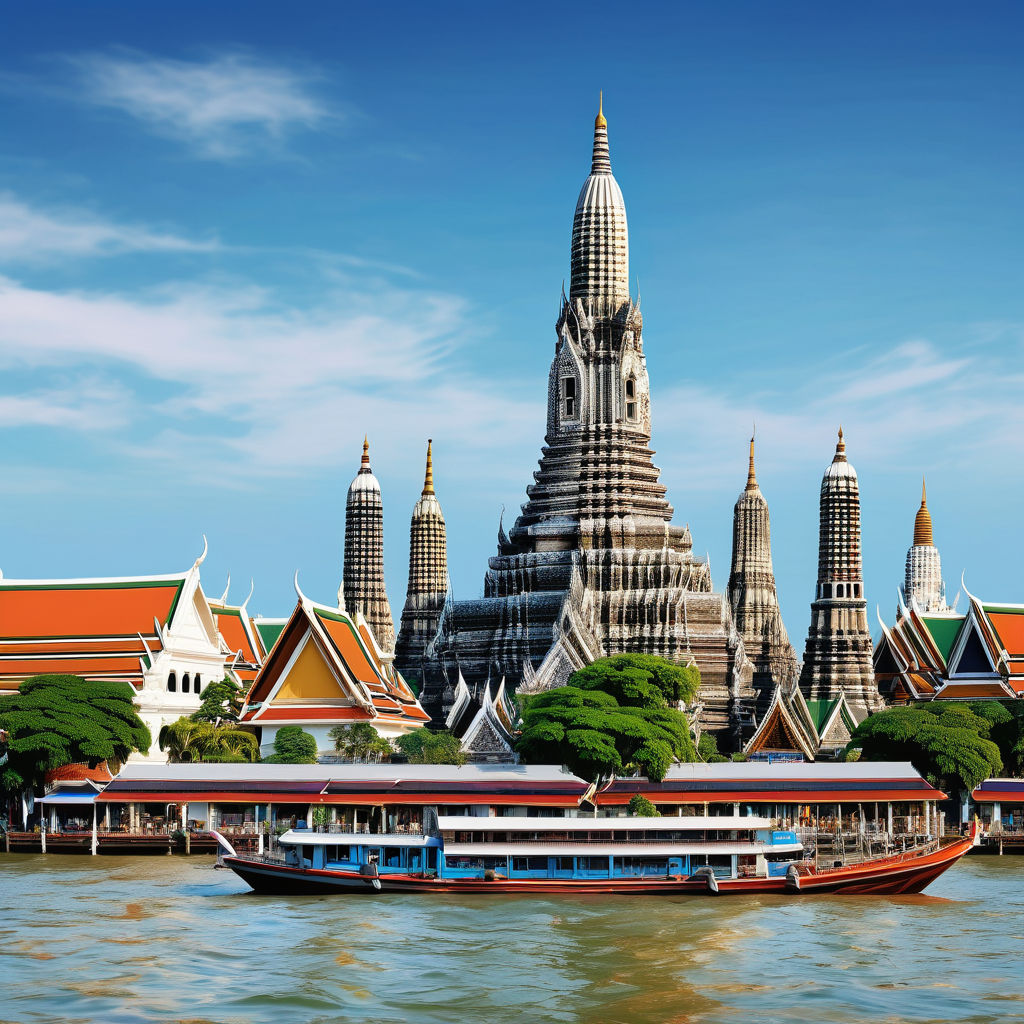Discover Thailand: Rich Heritage, Cultural Diversity, and Social Dynamics
Exploring Thailand's Cultural Tapestry, International Engagement, and Social Interactions

Introduction to Thailand
Thailand, officially known as the Kingdom of Thailand, is located in Southeast Asia. It is bordered by Myanmar to the northwest, Laos to the northeast, Cambodia to the southeast, and Malaysia to the south. The country also has coastlines along the Andaman Sea to the west and the Gulf of Thailand to the east. Major cities include Bangkok (the capital), Chiang Mai, Pattaya, and Phuket. Thailand's rich cultural heritage is a blend of influences from its neighboring countries, Buddhism, and its own ancient traditions. Known for its ornate temples, vibrant festivals, delicious cuisine, and hospitable people, Thailand attracts millions of tourists each year.
Cross-national and Cross-cultural Understanding
Thais generally engage with other cultures with a sense of curiosity, warmth, and respect. The country’s historical role as a regional hub for trade and its status as a top tourist destination have fostered an appreciation for cultural diversity. Thailand actively promotes cross-cultural understanding through various initiatives and programs. Significant cultural exchanges and educational programs highlight Thailand’s commitment to global engagement. Organizations like the Thailand Foundation and the Ministry of Culture promote Thai culture internationally through festivals, exhibitions, and language courses. Additionally, scholarships and exchange programs, such as the Thai Government Scholarships and the ASEAN University Network, facilitate academic and cultural exchanges that foster mutual understanding. International partnerships also enhance cross-cultural understanding. Thailand is an active member of ASEAN, the United Nations, and other international organizations, promoting cooperation and cultural exchange. These partnerships facilitate student exchanges, collaborative research projects, and cultural events, strengthening Thailand’s cultural ties with the world.
Interactions and Social Dynamics
Interactions between Thais and foreigners are typically characterized by politeness and hospitality. Thai social behaviors are influenced by cultural values such as "sanuk" (enjoyment), "jai yen" (cool heart), and respect for hierarchy and elders. These values are often reflected in the way Thais engage with outsiders. Social behaviors in Thailand emphasize respect and formality in initial interactions, but they quickly become more relaxed and warm. Greetings often involve a "wai" (a slight bow with palms pressed together) and a smile, depending on the level of familiarity and respect. Hospitality is a significant aspect of Thai culture, and guests are often treated with great care and generosity, frequently invited to share meals and participate in social gatherings. Communication styles in Thailand are generally indirect and polite. Thais value harmony and avoiding confrontation, often using subtle language and non-verbal cues to convey their messages. Understanding these subtleties can be challenging for foreigners, but learning the language and cultural norms can help bridge this gap. Language plays a crucial role in facilitating interactions. Thai is the official language, while English is widely taught in schools and spoken by many in urban areas, especially in business and tourism sectors. Multilingualism is valued and encouraged, especially in educational and professional settings.
Views on Dating and Relationships
Dating and relationships between Thais and foreigners are common and generally viewed positively. Thai society is open-minded about cross-cultural relationships, seeing them as opportunities for cultural exchange and personal growth. However, cultural expectations and traditions can still influence dating dynamics. In Thai dating culture, there is often an emphasis on mutual respect, compatibility, and family approval. Relationships are typically pursued with a long-term perspective, and there is a strong focus on emotional connection and shared values. Gender roles can be more traditional, with expectations for men to be providers and protectors, and for women to be nurturing and supportive. Cultural expectations and traditions, such as the importance of family approval and respect for elders, can impact relationships. Understanding and respecting these cultural norms is essential for successful cross-cultural relationships in Thailand.
Marriage and Family
Marrying foreigners is widely accepted in Thailand, although it comes with certain social and familial considerations. Legal considerations for such marriages are straightforward, with clear regulations for international unions governed by Thai civil law. Socially, Thai families may initially have reservations about cross-cultural marriages due to concerns about cultural differences and social compatibility. However, acceptance typically increases as relationships develop and families get to know the foreign partner. Family plays a central role in Thai culture, and marrying into a Thai family often involves participating in family gatherings and traditions. Common practices in cross-cultural marriages include celebrating both Thai and foreign traditions, creating a blended cultural environment. For example, a couple might celebrate Thai holidays like Songkran (Thai New Year) and Loy Krathong alongside holidays from the foreign partner’s culture.